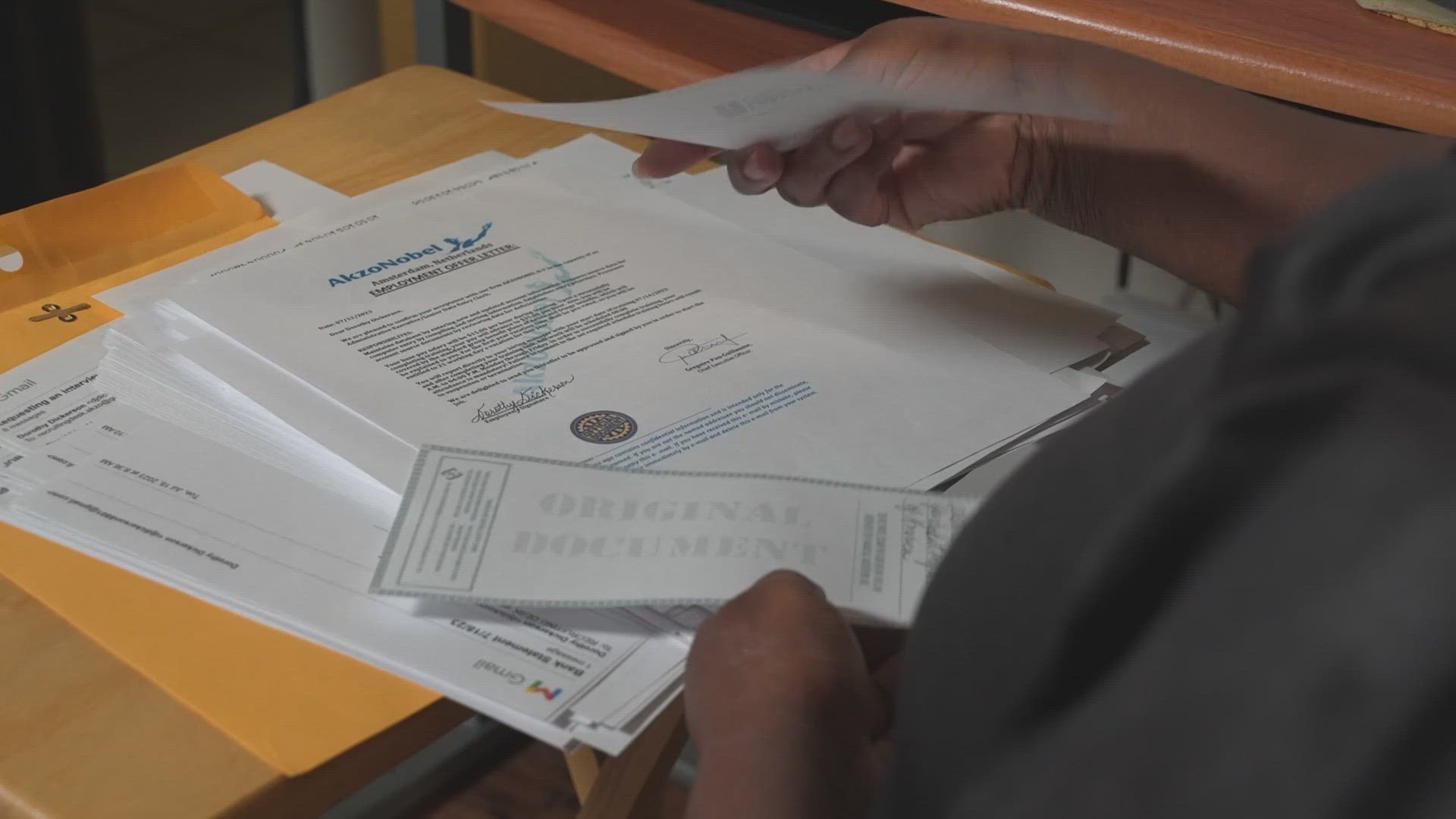DALLAS — Job scams are skyrocketing, propelled by the pandemic and the online nature from the shift to remote work.
A recent Better Business Bureau study found a 250% increase compared to last year of fraudsters using elaborate schemes to trick desperate job-seekers into handing over their personal information, and in many cases, their money.
Dorothy Dickerson, a 59-year old mom out of Dallas, fell victim, twice. She was conned out of more than $1,500 and has pages and pages of evidence detailing what happened.
"I felt embarrassed, I felt ashamed," Dickerson said. "I’m too intelligent for this, how did I let them swindle me out of all this money?"
Dickerson recently filed for bankruptcy and was using online job boards to look for employment. She says she was desperate to find a job and was elated when two companies responded to her applications, wanting to move forward.
She went through job interviews – all online and conducted via email, Zoom and Microsoft Teams. One of the companies even sent her an offer letter on what appeared to be the company's official letterhead.
"It looked real to me," she said. "I was thinking: 'hey! I got my big break!"
But then things started to get fishy. In order to work, the fake employers told she’d need thousands of dollars in equipment. They sent fake checks to her home, had her deposit them in her bank account and use them to buy gift cards which she would in turn send them pictures of to pay their vendors.
They drained the gift cards before the bank realized the checks were fraudulent and wiped the funds, leaving Dickerson out of money and in hot water with her bank.
"I’m feeling a little sick to my stomach – going back and looking at all this stuff," she said.
The BBB says Dickerson isn't alone.
“Employment scams are our number-one scam right now and unfortunately this is the type of scam that really hits people when they're down,” said Monica Horton, a BBB spokesperson.
The bureau's study found there's been more than $4 million in losses to these types of scams reported to the BBB since 2020. The federal trade commission tallied even higher with more than $845.1 million reported losses reported to that agency, with more than 282,000 reports.
“A lot of times these crooks are outside the United States and they're very good at concealing their identity, so it's difficult to track down," said Horton.
Which makes it near impossible for victims like Dickerson to get their money back.
While some online job boards like LinkedIn say they’re proactively working to curb fraudsters, the BBB says the best defense is making sure jobseekers are educated about potential scams.
The BBB has these tips:
Red flags for potential job scams
- Jobs requiring you to pay money
- Remote jobs involving checks
- Cold calls about jobs
- Higher-than-average pay
- Interview processes are done strictly over email
- Fake URLs, company names, and photos; impostors of well-known companies
- Mystery shopping, re-shipping, check-cashing, and car wrap job offers
Recommendations
- When searching for a job online, expect to encounter job scams. They are widespread and come in various forms
- Research companies that offer jobs at BBB.org
- Find a number on the business’s website and call to confirm the job or offer is real
- Check the email address to ensure it is connected to the company, not a personal “Gmail” or “Yahoo” address
- Be cautious about providing personal information to unverified recruiters and online applications
- Never pay a stranger for a job

